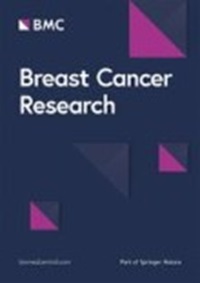Risk-management decision-making data from a community-based sample of racially diverse women at high risk of breast cancer: rationale, methods, and sample characteristics of the Daughter Sister Mother Project survey
IF 6.1
1区 医学
Q1 ONCOLOGY
引用次数: 0
Abstract
To understand the dynamics that limit use of risk-management options by women at high risk of breast cancer, there is a critical need for research that focuses on patient perspectives. Prior research has left important gaps: exclusion of high-risk women not in risk-related clinical care, exclusion of non-white populations, and lack of attention to the decision-making processes that underlie risk-management choices. Our objective was to create a more inclusive dataset to facilitate research to address disparities related to decision making for breast cancer risk management. The Daughter Sister Mother Project survey collects comprehensive information about the experiences of women at high risk of breast cancer. We collected novel measures of feelings about and reactions to cancer screenings; knowledge, barriers, and facilitators of risk-management options; beliefs related to cancer risk and risk management; and involvement with loved ones who had cancer. Eligible individuals were non-Hispanic white and non-Hispanic Black adult women who self-identified as having high risk of breast cancer and had no personal history of cancer. Between October 2018 and August 2019, 1053 respondents completed the online survey. Of these, 717 were confirmed through risk prediction modeling to have a lifetime breast cancer risk of ≥ 20%. Sociodemographic characteristics of this sample were compared to those of nationally representative samples of the US population: the 2019 Health Information National Trends Survey and the Pew Research Center report: Jewish Americans in 2020. The sample of 717 women at objectively high risk of breast cancer was largely (95%) recruited from non-clinical sources. Of these respondents, only 31% had seen a genetic counselor, 34% had had genetic testing specific to breast cancer risk, and 35% had seen at least one breast or cancer care specialist. The sample includes 35% Black respondents and 8% with Ashkenazi Jewish ancestry. Although encompassing a substantial range of ages, incomes, and education levels, respondents are overall somewhat younger, higher-income, and more educated than the US population as a whole. The DSM dataset offers comprehensive data from a community-based, diverse sample of women at high risk of breast cancer. The dataset includes substantial proportions of Black and Ashkenazi Jewish women and women who are not already in clinical care related to their breast cancer risk. This sample will facilitate future studies of risk-management behaviors among women who are and are not receiving high-risk care, and of variations in risk-management experiences across race and ethnicity.来自社区的乳腺癌高危种族妇女样本的风险管理决策数据:女儿姐姐母亲项目调查的原理、方法和样本特征
为了了解限制乳腺癌高危女性使用风险管理方案的动态因素,亟需开展以患者视角为重点的研究。之前的研究还存在一些重要缺陷:排除了未接受风险相关临床治疗的高危女性、排除了非白人群体,以及缺乏对风险管理选择的决策过程的关注。我们的目标是创建一个更具包容性的数据集,以促进研究,解决与乳腺癌风险管理决策相关的差异问题。女儿-姐妹-母亲项目调查收集了有关乳腺癌高危女性经历的全面信息。我们收集了以下方面的新指标:对癌症筛查的感受和反应;对风险管理方案的了解、障碍和促进因素;与癌症风险和风险管理相关的信念;与罹患癌症的亲人的关系。符合条件者为非西班牙裔白人和非西班牙裔黑人成年女性,她们自我认定为乳腺癌高风险人群,且无个人癌症病史。2018 年 10 月至 2019 年 8 月期间,共有 1053 名受访者完成了在线调查。其中,717 名受访者通过风险预测建模确认终生乳腺癌风险≥ 20%。该样本的社会人口特征与具有全国代表性的美国人口样本进行了比较:2019 年健康信息全国趋势调查(2019 Health Information National Trends Survey)和皮尤研究中心报告(Pew Research Center report):2020 年的美国犹太人。717 名客观上面临乳腺癌高风险的女性样本大部分(95%)是从非临床来源招募的。在这些受访者中,只有 31% 的人看过遗传咨询师,34% 的人做过专门针对乳腺癌风险的遗传检测,35% 的人至少看过一位乳腺或癌症护理专家。样本中有 35% 的黑人受访者和 8% 有阿什肯纳兹犹太血统的受访者。虽然受访者的年龄、收入和受教育程度差别很大,但总体而言,受访者比美国整体人口更年轻、收入更高、受教育程度更高。DSM 数据集提供了以社区为基础的、多样化的乳腺癌高危女性样本的综合数据。该数据集中包括大量黑人和阿什肯纳兹犹太妇女,以及尚未接受与乳腺癌风险有关的临床治疗的妇女。该样本将有助于今后对接受和未接受高风险护理的妇女的风险管理行为以及不同种族和族裔的风险管理经验差异进行研究。
本文章由计算机程序翻译,如有差异,请以英文原文为准。
求助全文
约1分钟内获得全文
求助全文
来源期刊

Breast Cancer Research
医学-肿瘤学
自引率
0.00%
发文量
76
期刊介绍:
Breast Cancer Research is an international, peer-reviewed online journal, publishing original research, reviews, editorials and reports. Open access research articles of exceptional interest are published in all areas of biology and medicine relevant to breast cancer, including normal mammary gland biology, with special emphasis on the genetic, biochemical, and cellular basis of breast cancer. In addition to basic research, the journal publishes preclinical, translational and clinical studies with a biological basis, including Phase I and Phase II trials.
 求助内容:
求助内容: 应助结果提醒方式:
应助结果提醒方式:


